The Rise and Fall of the Neoliberal Order: America and the World in the Free Market Era
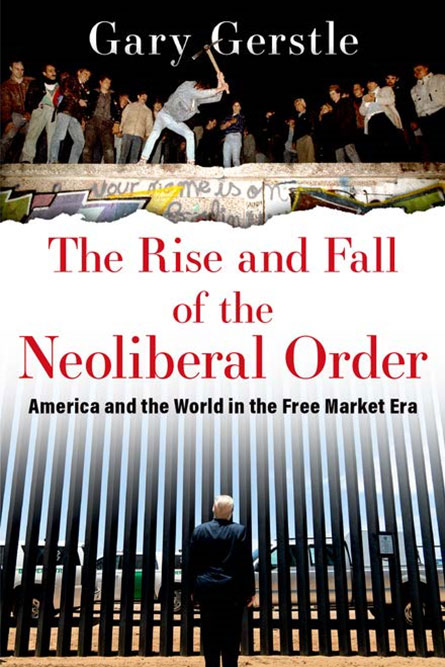
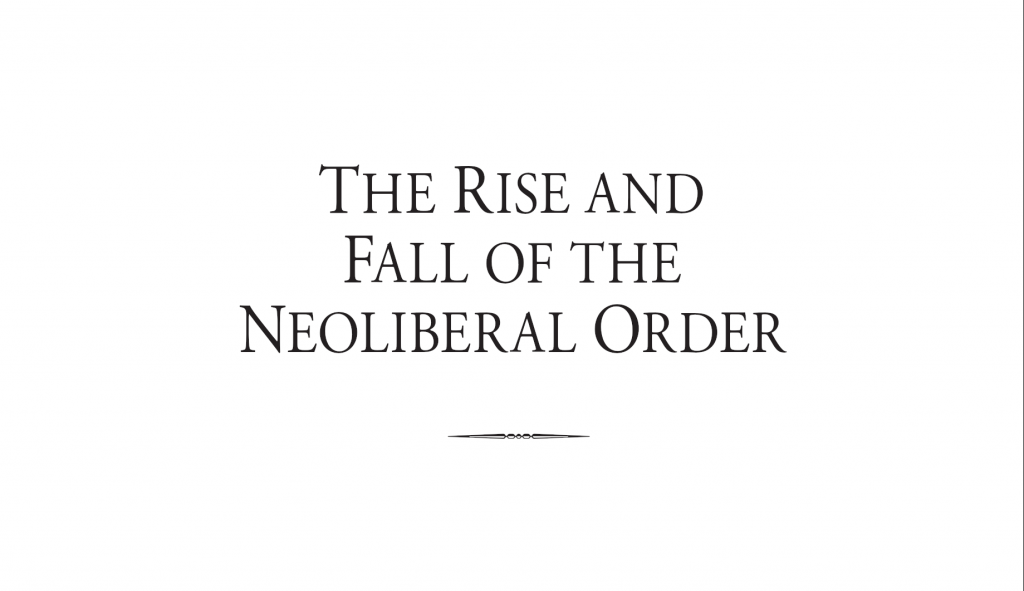
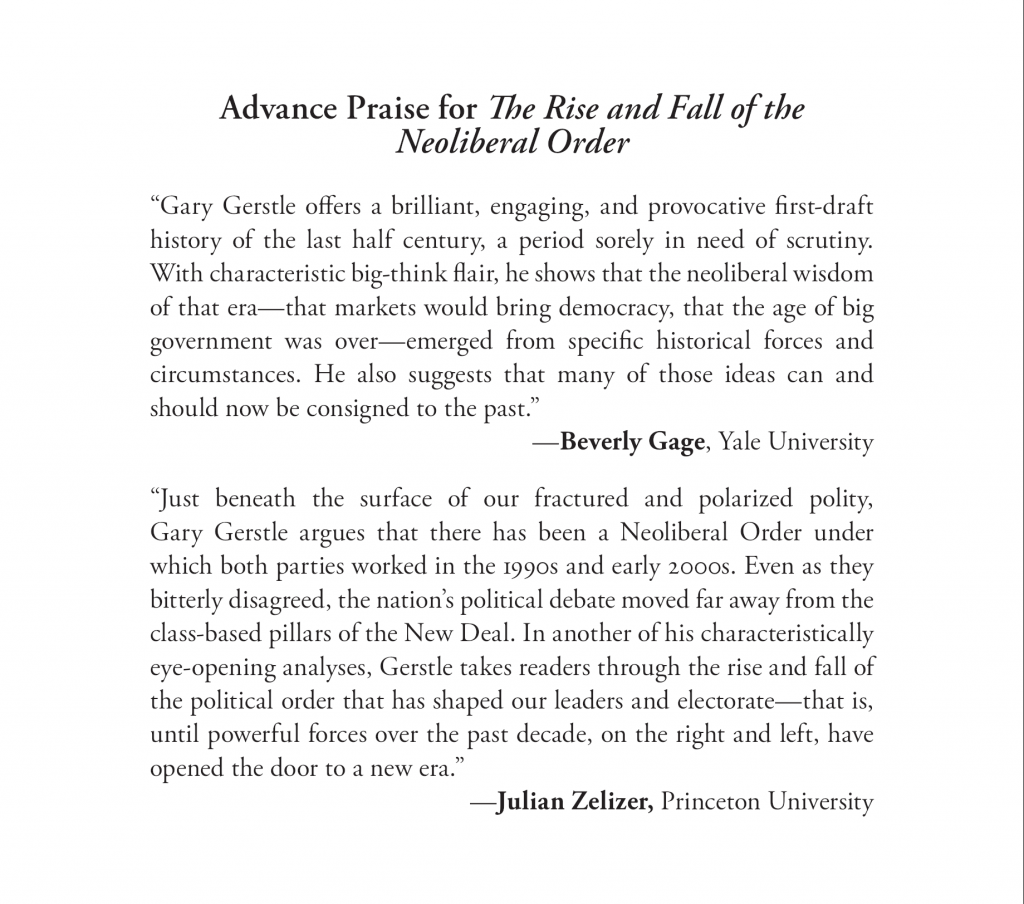
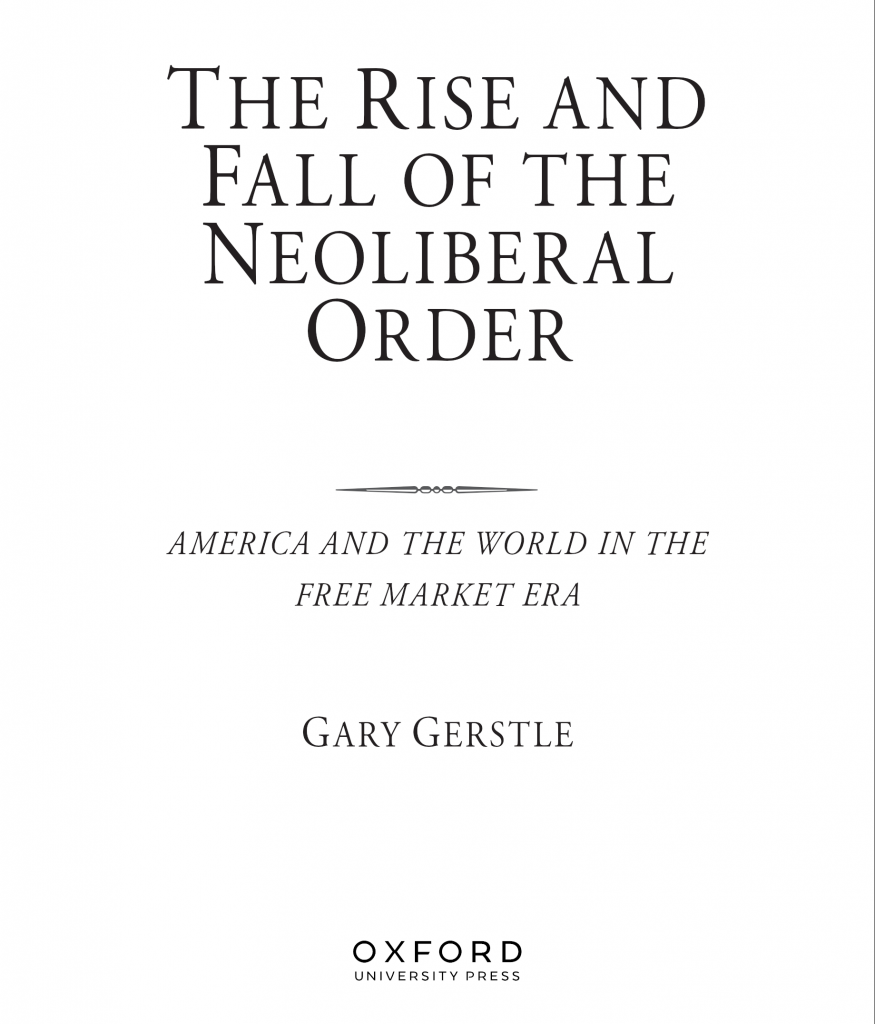
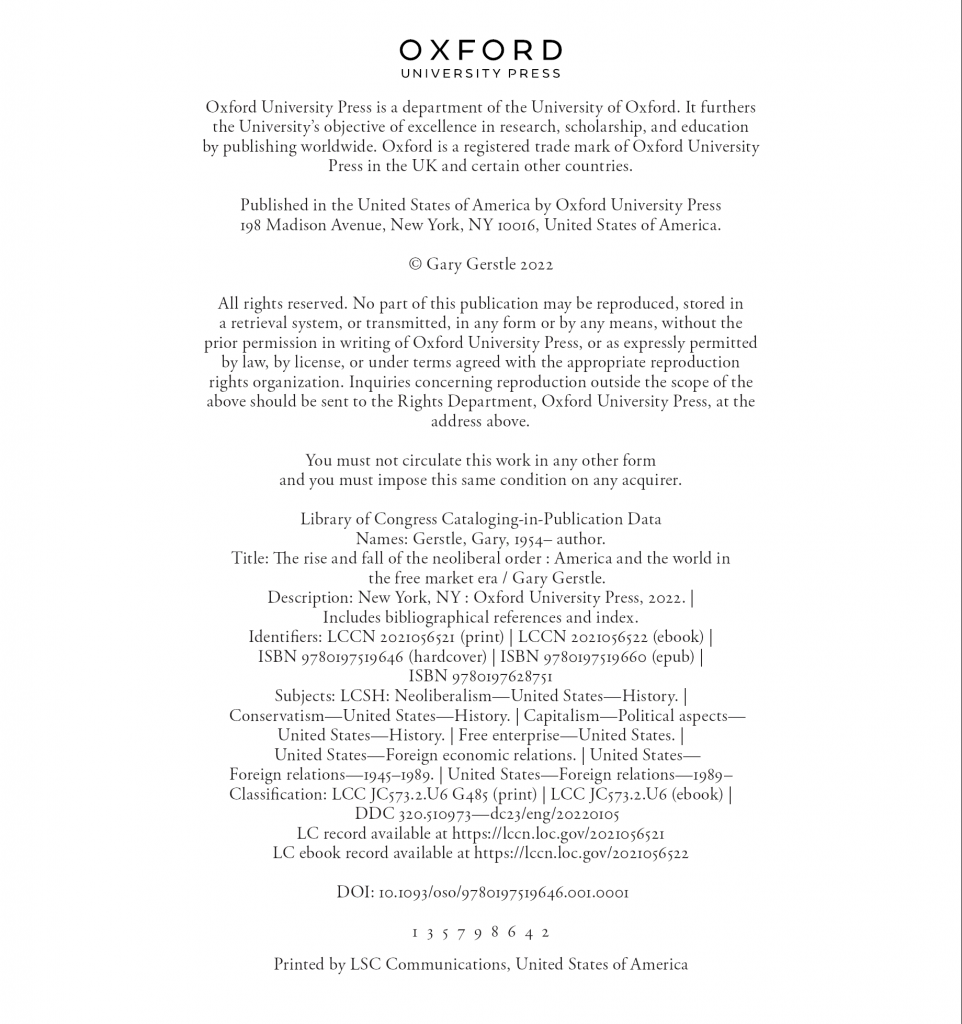
Publisher: Oxford University Press Language: English Paperback: 1089 pages ISBN: 9780393668940
Advance Praise for The Rise and Fall of the Neoliberal Order
“Gary Gerstle offers a brilliant, engaging, and provocative first-draft
history of the last half century, a period sorely in need of scrutiny.With characteristic big-think flair, he shows that the neoliberal wisdom
of that era—that markets would bring democracy, that the age of big
government was over—emerged from specific historical forces and
circumstances. He also suggests that many of those ideas can and
should now be consigned to the past.”
—Beverly Gage, Yale University
“Just beneath the surface of our fractured and polarized polity,
Gary Gerstle argues that there has been a Neoliberal Order under
which both parties worked in the 1990s and early 2000s. Even as they
bitterly disagreed, the nation’s political debate moved far away from the
class-based pillars of the New Deal. In another of his characteristically
eye-opening analyses, Gerstle takes readers through the rise and fall of
the political order that has shaped our leaders and electorate—that is,
until powerful forces over the past decade, on the right and left, have
opened the door to a new era.”
—Julian Zelizer, Princeton University
Introduction
Across the second decade of the twentieth-first century, the tectonic
plates structuring American politics and life began to shift. Even before
the pandemic struck, developments that ten years earlier would have
seemed inconceivable now dominated politics and popular consciousness: the election of Donald Trump and the launch of a presidency
like no other; the rise of Bernie Sanders and the resurrection of a socialist left; the sudden and deep questioning of open borders and free
trade; the surge of populism and ethnonationalism and the castigation
of once-celebrated globalizing elites; the decline of Barack Obama’s
stature and the transformational promise that his presidency once
embodied for so many; and the widening conviction that the American
political system was no longer working, and that American democracy
was in crisis—a crisis that the January 6, 2021, assault by a mob on the
Capitol so shockingly dramatized.
In this dizzying array of political developments, I discern the fall—
or at least the fracturing—of a political order that took shape in the
1970s and 1980s and achieved dominance in the 1990s and first decade
of the twenty-first century. I call this political formation a neoliberal
order. Ronald Reagan was its ideological architect; Bill Clinton was its
key facilitator. This book is a history of this political order’s rise and
fall. It offers a history of our times………
The phrase “political order” is meant to connote a constellation of ideologies, policies, and constituencies that shape American politics in ways that endure beyond the two-, four-, and six-year election cycles. In the last hundred years, America has had two political orders: the New Deal order that arose in the 1930s and 1940s, crested in the 1950s and 1960s, and fell in the 1970s; and the neoliberal order that arose in the 1970s and 1980s, crested in the 1990s and 2000s, and fell in the 2010s. At the heart of each of these two political orders stood a distinctive program of political economy. The New Deal order was founded on the conviction that capitalism left to its own devices spelled economic disaster. It had to be managed by a strong central state able to govern the economic system in the public interest. The neoliberal order, by contrast, was grounded in the belief that market forces had to be liberated from government regulatory controls that were stymieing growth, innovation, and freedom. The architects of the neoliberal order set out in the 1980s and 1990s to dismantle everything that the New Deal order had built across its forty-year span. Now it, too, is being dismantled. Establishing a political order demands far more than winning an election or two. It requires deep-pocketed donors (and political action committees) to invest in promising candidates over the long term; the establishment of think tanks and policy networks to turn political ideas into actionable programs; a rising political party able to consistently win over multiple electoral constituencies; a capacity to shape political opinion both at the highest levels (the Supreme Court) and across popular print and broadcast media; and a moral perspective able to inspire voters with visions of the good life. Political orders, in other words, are complex projects that require advances across a broad front. New ones do not arise very often; usually they appear when an older order founders amid an economic crisis that then precipitates a governing crisis. “Stagflation” precipitated the fall of the New Deal order in the 1970s; the Great Recession of 2008–2009 triggered the fracturing of the neoliberal order in the 2010s
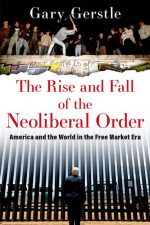
mamaspellsforlove –
Verified Purchase
shweta.rp24 –
Verified Purchase
lilbitsouth –
Verified Purchase